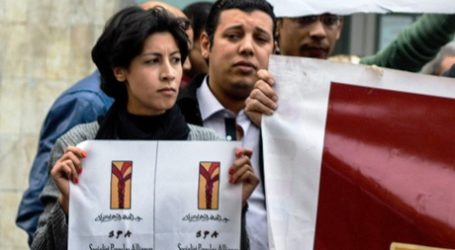EGYPT RECEIVES $2 BILLION DEPOSIT FROM KUWAIT

Cairo, 19 Dhul Qaida 1434/26 September 2013 (MINA) – Egypt’s central bank has received a $2 billion deposit from Kuwait, the governor said on Thursday (26/9).
“Yes. The Kuwait $2 billion (has been) received,” Central Bank Governor Hisham Ramez told Reuters in a text message as quoted by Mi’raj News Agency (MINA).
Kuwait, the oil-rich US ally, has announced an aid package of $4bn to Egypt, a day after neighbouring United Arab Emirates (UAE) and Saudi Arabia pledged a total of $8bn in aid, one week after military ousted Egypt’s freely elected president.
According Kuwait’s official news agency, KUNA, $2bn of the package will be in the form of deposit to the Central Bank of Egypt, while $1bn will be offered as a non-refundable grant. The Gulf state will also provide cash-strapped Egypt with fuel and petroleum products worth $1bn, KUNA’s report said.
Ramez said one week ago that Egypt had returned a $2 billion deposit from Qatar, which strongly supported Mursi, after negotiations to turn it into three-year bonds had failed.
In the midst of rejection protest of military coup, Egypt got US-Allies gulf countries aids. Egypt-US Relationship was revealed by the Egyptian military spokesman Ahmed Ali who said the Egyptian military-US defense relation continued lasting until now.
Commenting on the aid, Bank of America Merrill Lynch Global Research said in a report issued on July 10 that it “will alleviate the concerns about the external position and the transition, in our view,” adding “we suggested Egypt need roughly $8bn to keep foreign international (FX) reserves stable over the next 18 months.”
“This would depend on the Central Bank of Egypt FX management framework as well,” added the report.
“The level of success of any aid mainly relies on how it will be employed and placed in the economy,” said Hanaa Ebeid, a senior researcher at the Ahram Centre for Strategic Studies.
“We have major problems such as the budget deficit and the low foreign reserves, so we can consider it as a temporary relief to assist normal Egyptian everyday life, but it will not result in an economic development,” she added.
When asked whether the introduction of violence after the 30 June revolution would affect the delivery of these aids, Ebeid said: “The violence itself will not have a major influence on the economy but political stability is a background condition for the economic development of any country.”
Angus Blair, the CEO of Signet Institute, defines the lack of political stability that the country is experiencing as “a fundamental problem”.
“Aids will assist the country getting the imports it needs but unless the issue of violence is solved, the country will face problems paying the bills,” Blair added.
The UAE and Saudi Arabia announced that Egypt will receive an $8bn aid package; the KSA will contribute with $5bn and UAE will offer $3bn. Saudi’s aid will be divided to $1bn cash, $2bn for petroleum products and another $2bn deposit. The UAE will contribute a $1bn grant and $2bn interest-free deposit with the central bank. (T/P03/E1)
Mi’raj News Agency (MINA)






